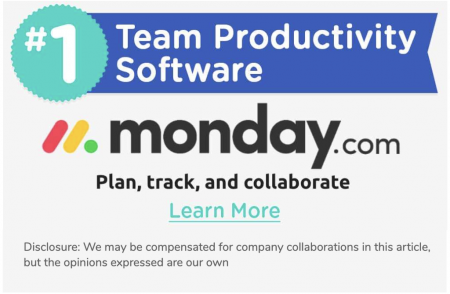Any Executive Assistant career path will eventually come to a fork. At this critical juncture, most Executive Assistants will have to choose between two basic career paths:
- Path A: Further a career as an Executive Assistant.
- Path B: Leverage the Executive Assistant experience to win a new role.
Even if you haven’t reached this fork, then the information below will help you gear up to make the decision and choose the right path for you when it arrives.
(Join our private Facebook Group for executive assistants. It’s a community to connect, collaborate, and share advice on how to overcome the wide spectrum of challenges you face in your role.)
Path A: Further your career as an Executive Assistant
Top skills to develop for this path
The most effective Executive Assistants possess an assortment of diverse and impressive skills. Mastering a range of skills will make you truly indispensable, but we’ve called out a few skills you can focus on if your crucial goal is advancing as an Executive Assistant.
Being organized
Executive Assistants juggle tons of different tasks, deadlines, and information—often within the first few hours of walking into the office. Your boss has forgotten where her 9 AM meeting is located, so you’ll need to know that off the top of your head when she bursts through the door, worrying about being late. After you tell her where the meeting is, she’ll be delighted to find out that you can also remember who she’s meeting with and remind her of the most important bullet points on her executive summary slide.
To be truly indispensable resources, Executive Assistants have to stay organized so they can be at least two steps ahead of everyone else.
Enhance your organization skills: You probably see a lot of blanket advice on improving your organization skills; that’s why our number one tip for improving organizational skills is to find an organizational system that works for you. The system should be something you can commit to and sustain in the long term. Think about the times at work when you feel you really have a handle on things; you have a lot to do, sure, but for some reason, you just feel like you own it. Is it because you made a color-coded list the night before? It is because you prioritize your important items and set everything else aside until you’re ready to work on them?
Do a little self reflection to figure out what works for you. Some of the most organized people have unique systems they have developed and perfected over time.
Using discretion in making decisions
Discretion will get you far in an Executive Assistant career path because every boss wants someone they can trust no matter what. Cultivating and demonstrating discretion is a perfect way to earn the trust of your executive; and if you have trust, then you have the ability to take your EA career to new heights.
Enhance your ability to use discretion: Never act before you have all the facts. In one company’s guide to exercising discretion in decision-making, authors advise readers to “gather information and establish the facts” as one key step to exercising discretion.
Ask questions, do research, and consider every decision from multiple angles to cultivate your discretion.
Displaying foresight and anticipation
When you have strong foresight and anticipation, you know how to spot opportunities a mile away, resolve problems before they get serious, and manage any relationship by knowing exactly how people will act in any given situation.
Enhance your ability to think ahead: Start visualizing the future. As you go through your days, start watching for trends and changes. (When your boss mentions a certain technological strategy at least twenty times, it might be a trend to watch.) Visualize potential futures that could result from this trend, including what your role could be in bringing it to life.
Possessing emotional intelligence
Emotional intelligence is the little voice inside that helps you understand what others might be feeling during any given situation. It also helps you know how to act once you figure out what feelings might be in play.
Emotional intelligence also gives people the ability to maintain and nurture thriving relationships, which is why it has the power to enhance any Executive Assistant career.
Enhance your emotional intelligence: Most experts agree that simply listening carefully, and reflecting and acting on what you hear, does wonders for boosting emotional intelligence.
Path B: Leverage your Executive Assistant experience to win a new role
Top skills to develop for this path
Some skills seem to manifest in the most successful people, regardless of their positions or industries. These are core skills that almost any professional, or any human being for that matter, can leverage in multiple jobs and multiple life situations.
Executive Assistants have the opportunity to develop these core skills in their roles. Here are some of the skills, seen often in Executive Assistants, that also translate to a variety of other careers and industries.
Resourcefulness
Executive Assistants inevitably hear every request under the sun throughout their careers, and sometimes all in just one week. One day, an EA might have to figure out how to get in touch with an important business contact that is also impossible to get a hold of; the contact doesn’t use email and ignores most phone calls. It’s the EA’s job to call upon the powers of persistence and creativity to find a non-invasive way of contacting them. The next day, an EA might have to whip up a last-minute presentation for the meeting everyone forgot about.
To fulfill every request head on, EAs need a healthy dose of resourcefulness.
Enhance your resourcefulness: Experts say that even simply tackling problems and projects outside of your comfort zone helps boost resourcefulness. As you confront challenges and remain persistent until you find a solution, you’ll build the problem-solving muscles you need to be resourceful.
Other careers where these skills are relevant:
- Event Planner
- Business Analyst
- Human Resources Specialist
Big-picture thinking
Executive Assistants who thrive in the long term are often visionaries; they anticipate the future of the company and make moves that put them front and center during streaks of change and growth.
For example, an Executive Assistant with powerful big-picture thinking skills might see that the Chief Of Staff has assembled a committee tasked with researching the business applications of a new technology. This EA might take it upon herself to learn about this technology and stay ahead of the game.
Enhance your big-picture thinking: Dice Insights recommends considering a variety of different mindsets in all situations to enhance big-picture thinking. Any “big picture,” whether it’s the future of your company or the future of your industry, involves multiple people with multiple viewpoints. Being able to consider these different perspectives will help you develop a more holistic mindset while examining any situation.
Other careers and industries where these skills are relevant:
- Business/Organizational Development Specialist
- Futurist
- Fundraiser
Analytical and critical thinking
Executive Assistants must make snap decisions every single day. Some of these decisions might even be high-impact, therefore EAs need sharp analytical and critical thinking skills to be able to process information and make sound decisions fast.
Enhance your critical thinking skills: Reflect more, even about just everyday things, to develop your analytical muscles. The Foundation for Critical Thinking recommends using time that might otherwise be “wasted” on less productive activities on reflecting. The foundation recommends asking any of the following simple questions to be more reflective:
- When did I do my worst thinking today?
- When did I do my best?
- What in fact did I think about today?
- Did I figure anything out?
- Did I allow any negative thinking to frustrate me unnecessarily?
- If I had to repeat today what would I do differently? Why?
- Did I do anything today to further my long-term goals?
- Did I act in accordance with my own expressed values?
- If I spent every day this way for 10 years, would I at the end have accomplished something worthy of that time?
Other careers where these skills are relevant:
- Office Manager
- Operations Manager
- Payroll Specialist
Communicating effectively
Executive Assistants must work, and ideally communicate effectively, with a variety of different personality types. From meeting with key leaders in the Marketing department about a new campaign to assembling orientation packets with the Human Resources team, EA collaborations span a gamut of organizational processes.
Enhance your communication skills: Contrary to most of our initial instincts, becoming a better communicator often involves becoming a better listener. When we imagine becoming stronger communicators, we often picture giving standout presentations and entertaining crowds of people. Those activities fit better in the category of “entertaining” than communicating. Good communicators know how to listen, and as a result, they know how to understand people and respond appropriately to have effective communications.
Other careers where these skills are relevant:
- Public Relations Specialists
- Recruiters
- Sales Managers
What skills have you found to be most helpful in your career? We’d love to hear from you—even if you’re not an Executive Assistant!
(PS – Join our private Facebook Group for executive assistants. It’s a community to connect, collaborate, and share advice on how to overcome the wide spectrum of challenges you face in your role.)














Love it.. thank you and it’s very useful!